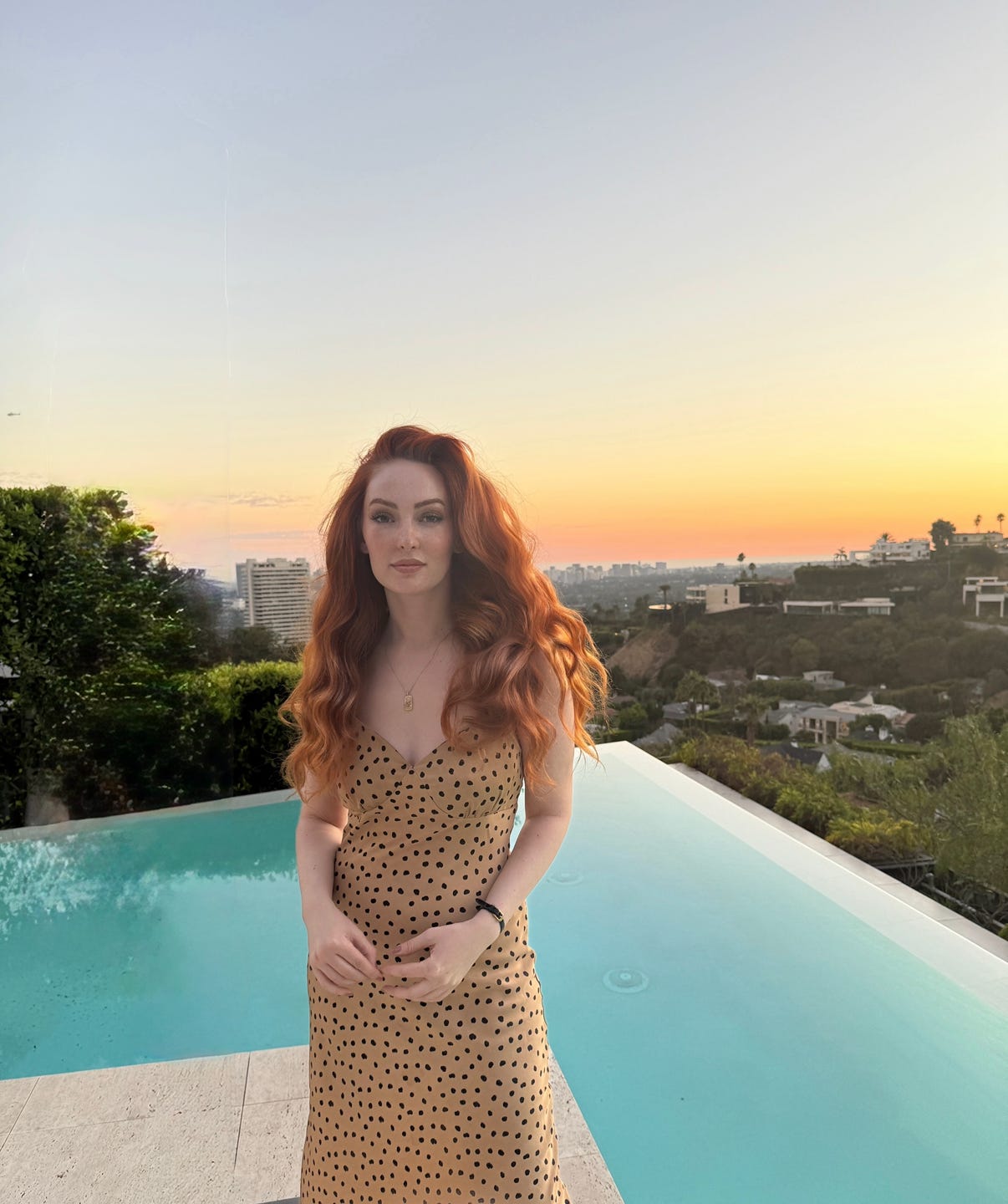When Memory Edits the Story
What a forgotten childhood moment taught me about fear, beauty, and survival
Today I heard a story about myself I didn’t know. It sounds strange to say that, but isn’t that what family does, keep the archive, edit the reels, hand you back your own life in pieces? I found out that when I was a toddler, my family lived in Tampa Bay for a short stretch, just after we left Canada and before California. A tiny, forgotten detour. A way station in the sun.
I always thought I remembered that place. The memory was simple, almost idyllic: a boat at sunset, the ocean holding us steady, seashells and crabs pressed like secrets into calm Florida water. In my mind, the sky was a pastel blur that looked painted rather than lived. That was the picture I carried, the one I thought belonged to me.
But memory is a terrible archivist. My parents told me that on that boat I was not awestruck or serene, not marvelling at shells or the horizon. I was absolutely terrified. They said I hid in the belly of the boat, trembling, refusing to climb the steps until someone carried me up. My postcard was wrong. My pastel sky was stitched together after the fact. What I remembered as beauty began, in reality, with fear.
It unsettles me, the way memory cleans house without asking. My brain took a trembling toddler, afraid of the waves, and redrew her as a girl who could handle sunsets. It gave me a picture I could hold on to, something luminous to put in my pocket. Somewhere along the line, the fear was edited out.
But isn’t that what reinvention is? A kind of self-authored amnesia. We re-story ourselves, sand down the trembling parts, keep only the glimmers. It makes me think about all the other memories I carry, the childhood houses, the early loves, the cities I swore would be forever. How many of them are as curated as that sunset at Egmont Bay? How many of them have had their terror swapped out for beauty?
And yet I don’t feel betrayed. I feel grateful. My memory gave me something I could use. Maybe the child on the boat couldn’t stand the waves, but the adult who came later needed to know she had once seen a horizon and survived it. My mind decided that beauty was the better inheritance.
Reinvention is usually talked about as deliberate, moving cities, cutting your hair, changing careers. But sometimes it’s quieter, almost invisible. Our own memories do it for us. They hide what was unbearable and give us a version we can carry forward. They let us believe we were braver than we were, steadier than we felt, more in love than we knew.
The danger, of course, is when we forget that it is editing. That there was another version, the one that shook at the bottom of the boat. But maybe the trick is to hold both: the fear and the pastel sky, the trembling and the beauty. To recognize that reinvention isn’t a betrayal of the past but a survival strategy, a way of choosing which parts of the story get to lead us into the next chapter.
I think about that little girl in Tampa often now. Not the postcard version, but the hidden one, too. Terrified, shaking, refusing. Carried up by someone else’s arms. She saw the world in a flash, the water, the shells, the sunset, and didn’t keep the fear. She kept the beauty. Maybe that’s the first reinvention I ever pulled off.
Has your memory ever rewritten your own personal history?



Rather than my memories becoming deceitfully rosy, only the outstanding bad and good moments stand out, in stark relief, with sensual impressions that haunt me. My day to day life back in the day is what's becoming fuzzy. I also find out that, as I listen to the history of music I've lived through, the songs tend to lose their nostalgia, their ties to specific personal events, and start to live on their own. I find this a good thing.
Another insightful, incisive commentary, Nic. Thanks!
What an intriguing and thoughtful story. Thank you for sharing this with us.
I dealt with a considerable amount of trauma as a child, so I think my brain has mostly just blocked out a ton of those memories. Sadly, some still get through.